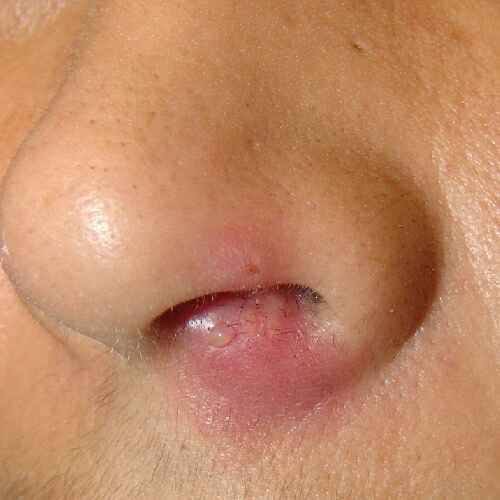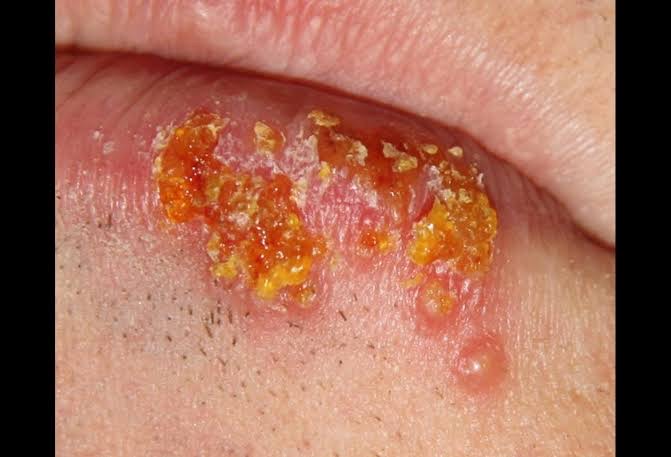A swollen nose can be uncomfortable and alarming, often accompanied by pain, tenderness, and difficulty breathing. While injuries and allergies are common causes of nasal swelling, various infections can also lead to this distressing symptom. In this article, we’ll delve into five infections that can cause the nose to swell, along with their associated symptoms and treatment options.
1. Sinusitis:
Sinusitis, also known as a sinus infection, occurs when the sinuses become inflamed and swollen due to infection or inflammation of the sinus tissues. Common symptoms of sinusitis include nasal congestion, facial pain or pressure, headache, and thick nasal discharge. In severe cases, sinusitis can cause significant swelling of the nasal passages, leading to difficulty breathing through the nose. Treatment for sinusitis typically involves antibiotics, nasal decongestants, and saline nasal irrigation to relieve symptoms and clear the infection.
2. Rhinitis:
Rhinitis refers to inflammation of the nasal mucous membranes. Which can be caused by various factors, including infections, allergies, and irritants. Viral infections, such as the common cold or flu. Can trigger acute rhinitis, leading to symptoms such as nasal congestion, runny nose, sneezing, and nasal swelling. Allergic rhinitis, commonly known as hay fever. Can also cause nasal swelling due to an allergic reaction to pollen, dust mites, or other allergens. Treatment for rhinitis depends on the underlying cause and may include antihistamines, decongestants, nasal corticosteroids, and allergen avoidance measures.
3. Nasal Cellulitis:

03/63
Dr. Thomas F. Sellers/Emory University
Facial erysipelas manifested as severe malar and nasal erythema and swelling.
Erysipelas is a dermatologic condition, which involves the inoculation of the skin and subcutaneous tissue with streptococcal bacteria causing edema and bright red erythema of the affected areas. It is sometimes referred to as cellulitis.
Nasal cellulitis is a bacterial infection of the skin and soft tissues around the nose, typically caused by the bacteria Staphylococcus aureus. The infection can lead to redness, swelling, warmth, and tenderness of the affected area, including the nose. In severe cases, nasal cellulitis can cause significant swelling of the nasal tissues, making it painful and difficult to touch or move the nose. Treatment for nasal cellulitis usually involves oral antibiotics to eliminate the bacterial infection, along with pain relief medication and warm compresses to reduce swelling and discomfort.
4. Nasal Furuncle (Boil):

A nasal furuncle, also known as a nasal boil, is a localized bacterial infection of a hair follicle in the nose. It can cause redness, swelling, and pain at the site of the infection, leading to noticeable swelling of the affected area. Nasal furuncles are often tender to the touch and may produce pus or drainage as the infection progresses. Treatment for nasal furuncles may involve warm compresses to promote drainage, topical or oral antibiotics to eliminate the infection, and incision and drainage in severe cases.
5. Herpes Simplex Virus (HSV) Infection:

Herpes simplex virus (HSV) infections can cause cold sores or fever blisters, which are small, fluid-filled lesions that typically appear on or around the nose and lips. These lesions can cause local swelling and inflammation of the surrounding tissues, leading to discomfort and cosmetic concerns. HSV infections are highly contagious and can be transmitted through direct contact with an infected person or contact with infected saliva or mucous membranes. Treatment for HSV infections may involve antiviral medications to reduce symptoms and prevent recurrence.
Nasal swelling can be caused by various infections, ranging from sinusitis. And rhinitis to bacterial skin infections and viral infections like herpes simplex. Understanding the underlying cause of nasal swelling is essential for determining appropriate treatment and management strategies. If you experience persistent or severe nasal swelling accompanied by other concerning symptoms. Such as fever, severe pain, or difficulty breathing, it’s important to seek medical attention promptly for proper evaluation and treatment.
Pingback: “Herpes Simplex Virus” what is means